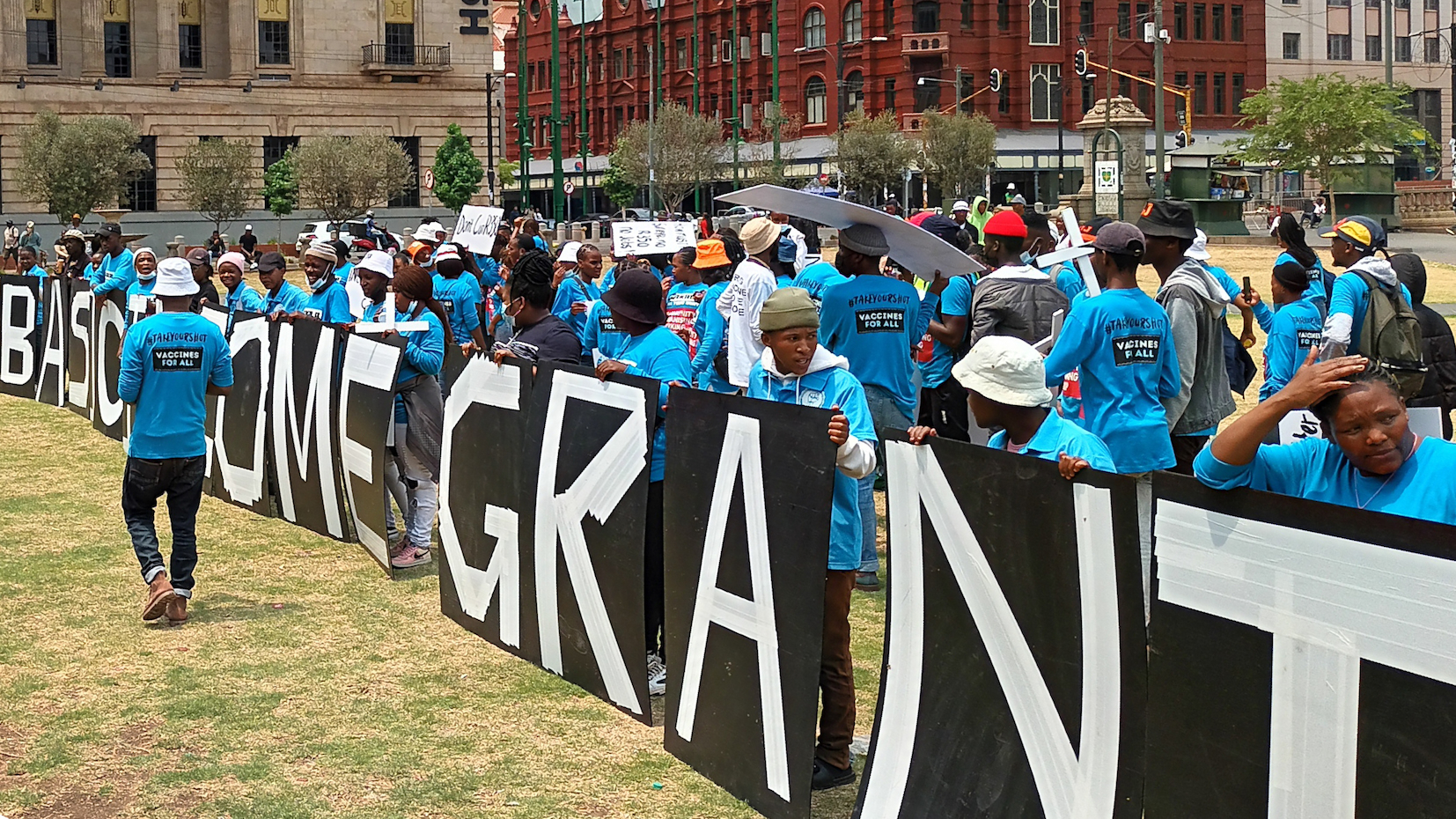Soon after graduating from a Technical Vocational Education and Training college in KwaZulu-Natal, Nqobile Zuma found herself, like millions of other young South Africans, unemployed.
Despite receiving her N5 in electrical and motor mechanics, Zuma still struggled to find a job. Then the 29-year-old got an unusual opportunity.
For two years she would receive R2,000 per month and she could spend this money how she wished.
Zuma became part of a social experiment where 100 participants, who are graduates from Technical Vocational Education and Training colleges in Durban and Pietermaritzburg, have been receiving a cash transfer each month since October 2022. Their last payment will be at the end of September.
The initiative is called the Unconditional Cash Transfer Project and is funded by the German Catholic Bishops’ Organisation. The Pietermaritzburg Economic Justice and Dignity Group, and the Southern African Catholic Bishops’ Conference have been responsible for implementing the initiative.
Economic livelihood
The aim of the initiative was to determine whether transferring R2,000 cash to an unemployed person, who had completed post-school education programmes, would lead them to create an economic livelihood. This is something that the Pietermaritzburg Economic Justice and Dignity Group has pushed for over a long time.
The advocacy group has been releasing a household affordability index that tracks the cost of 44 food items typically used by low-income families from several cities and towns in South Africa. This index has illustrated the increasing burden of rising food and energy costs for these families.
“We need to rethink (universal grants) as a way of making an investment in the economy, through investment in people,” says group programme co-ordinator Mervyn Abrahams.
According to Abrahams, many of the participants were at first extremely sceptical about the initiative and were reluctant to take part.
“That’s indicative of there being so many scams,” says Abrahams.
Does the unconditional grant improve people’s lives?
So far, the organisers have found that the cash grant has had a positive effect in allowing some of the participants to launch economic livelihoods.
By March this year, 27% of recipients had started some form of income-generating activity.
Zuma was one of them. At first, she tried setting up a computer business, charging learners R200 to teach coding and computer literacy. But this fell through when their parents couldn’t pay her.
Zuma then decided to try farming on a hectare of land near her home in Impendle in rural KwaZulu-Natal in February this year. She is growing potatoes, spinach and onions.
Expanding cultivation
She used the money from the cash grant towards getting fencing and a water tank. She is in the process of expanding her cultivation. She sells the vegetables she grows to local supermarkets.
Another participant, Ntokozo Mkhize, used her grant to kickstart a perfume selling business which she runs from home.
“I advertise through my phone on WhatsApp,” she said, adding that she is still looking for employment and uses some of the money to apply for jobs.
The grant was found to be useful in helping not only the participants, but also their families in securing full time work.
“It is quite an expensive occupation (looking for work) because you need data and airtime. Then you need transport money and money to buy a nice shirt or pair of shoes for when you go for your interview,” Abrahams said.
Some of the other participants started selling clothes, set up a gardening service and even opened a piggery, said Abrahams.
Others involved in the pilot project used their money to help pay for their siblings’ school transport and uniforms. Some grant money was also used to renovate and extend family homes.
One recipient had to use her grant to replace the income lost from her grandmother’s old age pension. Abrahams said that when asked, 73% of families told them that they were no longer running out of money during the month.
A universal grant would boost the economy
Initiatives like this are not new. Universal grant studies have been run before in a number of countries.
Isobel Frye, the executive director of the Social Policy Initiative, said that there had been at least 300 in the past couple of decades.
The Social Policy Initiative aims to alleviate poverty through social policies. It has been calling for the introduction of an unconditional universal monthly grant in South Africa.
The initiative has researched the economics and believes that a R1,500 universal grant to every South African resident, including refugees and registered asylum seekers, would create just under two million jobs, and grow the economy by 5.2% a year. There would be other spin-offs too, according to Frye.
“A Finnish pilot found that people were mentally better off; they were happier,” she said.
As the Unconditional Cash Transfer Project winds down this month, Abrahams said he would like to expand the project and see it rolled out in other provinces, and in both urban and rural settings.
“There’s a whole range of things we need to look at, like the kinds of benefits that we can see, and even the benefits that we can’t see.
“Then we can present it to policy makers for consideration as another tool towards expanding economic activity in the country,” said Abrahams. DM
First published by GroundUp.




